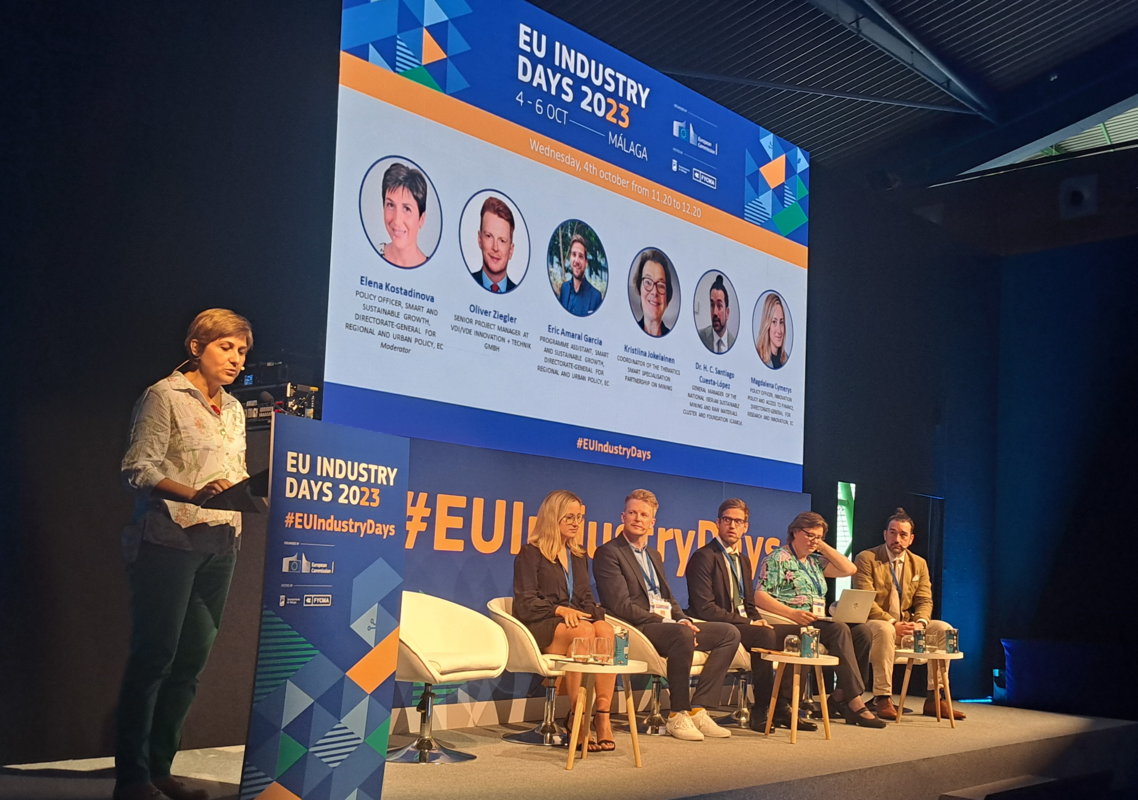Early October 2023 saw the cycling industry reach a new EU policy milestone with the unveiling of the EU Cycling Declaration at the Sevilla Urban Mobility Days. But while cycling advocates celebrated the developments in the capital of Andalusia, CIE Industry Manager Jacques Lovell took part in the EU Industry Days taking place on the other side of the region, in Malaga, to get a sense of what to expect from cycling’s newfound place at the EU industrial policy table.
If there was one big lesson learned from panel discussions and meetings in Malaga, it is that so-called ‘cascade funds’ offer a faster, lighter and adapted type of funding instrument that is more accessible for cycling companies. In addition, many other industries work with dedicated structures – cluster organisations - that typically help SMEs scale-ups and start-ups in a given sector to identify funding opportunities, build consortia and submit applications for EU-supported projects. More often than not, cluster organisations are also pivotal in promoting, managing and helping companies benefit from cascade funds.
With the launch of the EU cycling declaration, which dedicates a chapter to supporting the growth of the industry, ensuring that the cycling companies are in a position to tap into the policy support on offer now appears all the more important. But the reality is that the many SMEs, start-ups and scale-ups in cycling can struggle to connect with EU funding and support opportunities for, inter alia, research, innovation, skills, digitalisation or sustainability.
The scale, complexity and intensity of submitting EU project applications, usually via a multi-national consortia, can be overwhelming for many companies in cycling - as well as other sectors with a strong base of small and medium-sized companies. The heavy competition among bids is an additional factor that wards away companies from sectors, like the cycling industry, that do not have a history of systemically calling for industrial policy support.
This is where so-called ‘cascade funds’, also known as Financial Support for Third Parties (FSTP), appear as a welcome solution to address these gaps. Many EU projects include sub-programmes that provide in-kind support coupled with funding to help SMEs innovate, develop, transform and train.
Crucially, from an SME perspective, applying for cascade funds is relatively straightforward - with less paperwork and reporting requires - is usually open to applications by individual companies and puts support on offer that is better adapted to immediate needs. This contrasts with the largescale, multiannual, consortia-based projects warranted by better-known EU funding schemes like the Horizon programme for research.
In fact, the European Commission itself describes cascade funds as mechanisms to distribute public funding in order to assist beneficiaries, such as start-ups, scale-ups, SME and/or mid-caps, in the uptake or development of innovation, skillsets, digitalisation or sustainability. One may read into the fact that ‘cascade funds’, as a relatively recent addition to the portfolio of EU support schemes for industry, are a response to longstanding criticism regarding the inaccessibility of EU funding schemes for smaller companies.
This is why searching for cascade funding opportunities and helping cycling companies identify good outlets for support will now be an integral part of CIE’s Cycling Innovation Network’s activities. In our most recent session, our guest from EIT Manufacturing was the first of many to present a cascade funding opportunity to the expert group’s participants. The SURE 5.0 project’s second call applications offered individual companies in manufacturing and mobility financial support of up to 50 000 euros per applicant.
While applications for Sure 5.0 are now closed, we will be regularly presenting new cascade funding opportunities that fit the bill for cycling companies and we invite CIE Members, as well as possible future members, to join the Cycling Innovation Network to find out more! In parallel, we will continue looking into identifying, engaging with and seeking to help develop support structures and cluster organisations to in turn, help the industry make the most of its newfound place at the EU industrial policy table.
Share on Linkedin Share on Facebook Share on Twitter Subscribe to our newsletter